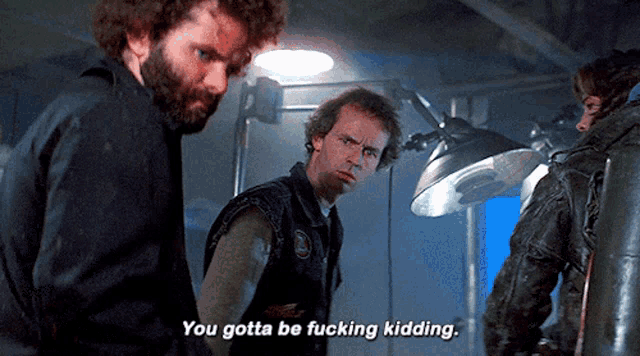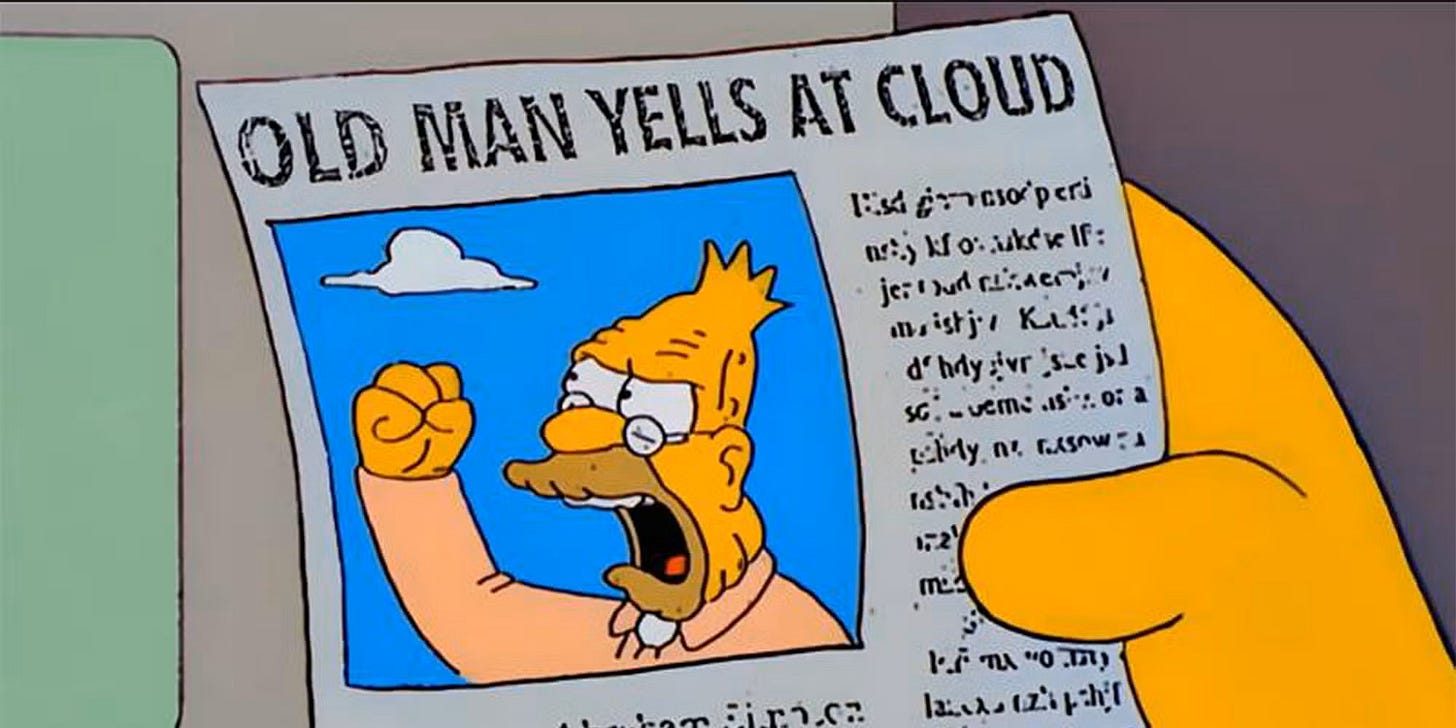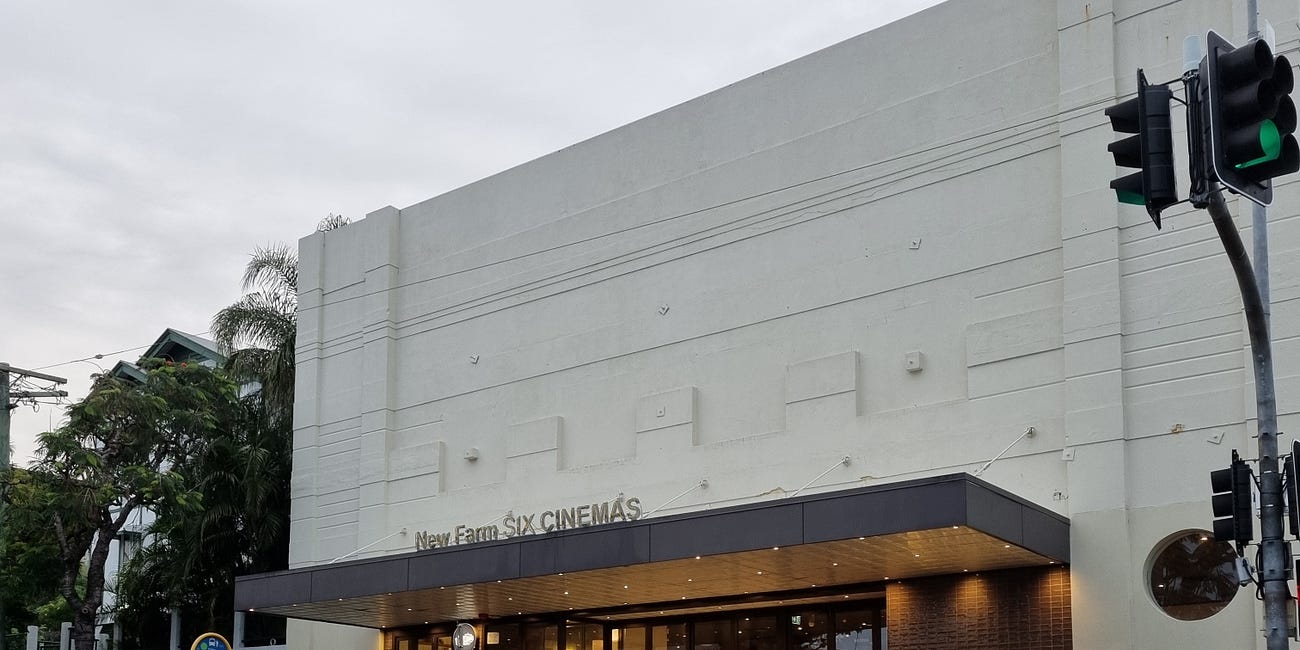Craving Quality in Cultural Stagnation
If you’re not part of the solution, then you’re part of the problem
I’ve been watching lots of older movies that are considered classics lately and it’s made me realise how unoriginal and unimpressive many films of the last decade or so are.
In just the past fortnight, I’ve seen Training Day (2001), Goodfellas (1990), The Departed (2006), The Boondock Saints (1999), Platoon (1986), and Blue Velvet (1986) to name a few. All of them (ashamedly) for the first time. Martin Scorsese is quickly becoming one of my favourite directors and Willem Dafoe one of my favourite actors. It struck me that I enjoy most of what I’ve seen from the 50s, 60s and 70s much more than the industry’s current output, even though technology has come a long way. The stories had more depth, the scenes were better-crafted and the performances were scarily committed. So, what changed?
It seems that we’re in an epidemic of lazy writing, cheap callbacks and safe creative choices. I know it’s cliché, but there really is a lot of style over substance these days. Despite being a relatively new medium in an everchanging culture, it feels like cinema has stagnated and is beginning to collapse on itself. There has been a universally agreed decline in quality due to a number of factors including commercial prioritisation, lack of originality and dependence on technology. The only people willing to take any risks and put in the effort are independent filmmakers, who are historically excluded from the industry’s leading organisations.
As they say, a fish rots from the head down. So, if we want change, it’s on us – the creators and consumers – to bring in some young blood and fresh ideas. But how can we do that when the odds are stacked against us?
I know, I know. You’ve read plenty of complaints about the rage against the Marvel machine and Disney-fication of everything countless times before – even just from me. But hear me out! This is deeper than the tired tirade of the major studios curating slop for us mindless couch potatoes in the form of an infinite feed. In fact, I’m saying that we all contribute to the culture as a collective and each play a part in shaping the way forwards (or backwards). If we’re not part of the solution, then we’re part of the problem. And I don’t know about you, but I’d rather a diet of meat and vegetables than sugar and bubblegum.
In the Golden Age of cinema, typically defined from the 1920s to 60s, a film’s strength was its storytelling ability and character development. With the rise of blockbusters and commercialisation in the 70s and 80s, the industry shifted towards high-concept films with a simple premise for mass appeal. The turn of the century saw a focus on thriller and sci-fi films, commenting on the global unease of political tension and emerging technology. Now, almost half the market is saturated with superhero action movies and an overabundance of franchises, sequels and reboots that nobody asked for.
Instead of offering social commentary, major studios are giving us diluted, vapid escapism. No wonder we’re starved and hangry. Not only is it derivative, it’s insulting. Thankfully, more film distributors who champion the indie underdogs are becoming full-blown production companies and providing a healthier alternative to the SlopstreamTM. But is it too little, too late? Actually, it could even be too much. The advent of streaming has severely wounded the expectation of moviegoers whilst lining the pockets of big corporations. It begs the question: if we have access to a wider variety of films, why have we settled for schlock?

Take the new War of the Worlds (2025) with Ice Cube, for example. It’s already accepted as a terrible, unnecessary reboot that praises Amazon (it’s a Prime exclusive) and does a blasphemous disservice to the original. Why would you even attempt it after Steven Spielberg, let alone try to appropriate it for modern audiences with excessive CGI and Gen Z slang? And yet, it’s the most viewed film on the platform despite a dismal 3% on Rotten Tomatoes and 1 out of 5 on Letterboxd due to its reputation as one of the worst movies ever made. People want to see what all the fuss is about, which only supports the algorithm.
The problem is that the suits and ties will look at the numbers and lick their lips, ignoring the copious comments from people reporting how they actually feel about it. I can’t talk, I haven’t seen it and I never will, but even the discourse in the online film community feels like an echo chamber. Even if I’m laughing at a bad movie, I’m still having fun watching it. But many new movies are bad not only because they’re poorly made, but because the filmmakers and actors take themselves too seriously, which isn’t fun at all. Horror is great for this, especially the slapstick cult classics of the 80s.
This is why I love The Evil Dead (1981) and The Stuff (1985), but hate The Strangers: Chapter 1 (2024) and I Know What You Did Last Summer (2025). I know the latter two are technically “requels,” but they suck so much that instead of laughing at them, I was mourning the time and money I had spent to see them. The thing is, I knew that they would be awful going into them. But you can’t knock it ’til you try it, right? That’s how I can safely say that I don’t like Drake, seafood or dating apps. I still like to catch the latest horrors when they come out because I hold onto the hope that the situation will improve, but I’m losing my grip.

Maybe I’m just part of the problem. It’s not like I’m making movies to elevate the artform or writing reviews that are widely read. As a collective, we must demand better if we are to effect change. Unfortunately, curiosity gets the better of us and we follow pack mentality to keep up to date on the latest topics of conversation. The Big Five – Disney, Universal, Sony, Paramount, and Warner Bros. – only want to churn out incoherent carbon copies for shameless cash-grabs. These bureaucratic curators have lowered the bar so much that we’re bored of blockbusters by now, which is an oxymoron if ever I’ve heard one.
When the stakes of a film are so high that the entire world will end if the hero dies, or so meaningless that half the population can be brought back after being killed off with a snap of the fingers, it’s no longer relatable. Consider the influence of films like The Shining (1980) and The Thing (1982), both of which flopped on release. In the years that followed, a plethora of copycats emerged that weren’t half as good as the earlier examples, leading to a belated appreciation for their cultural significance. They were ahead of their time and only found their audience on home video because it bypassed the gatekeepers of the traditional route.
While these are supernatural and science fiction, the stories are unusually insular for reputations of their size. My theory is that we need more films to be grounded in reality for a genuine emotional response rather than another dopamine hit, which could restore our faith in the future of cinema. We need to become engaged viewers again, not passive consumers. It would be ignorant of me to say that history won’t repeat itself with the films of today and take on a second life a decade from now. However, it seems that the masses and cinephiles alike feel cheated by the house. But who’s really to blame if we keep paying to play?
The business model is predicated on acquiring old IP and recontextualising it for new audiences, relying on nostalgia to generate ticket sales and view counts. This is not only lazy, it’s irrelevant. Art is a form of social commentary indicative of the specific period in which it’s created. While stylistic trends are cyclical, the themes and actions are constantly updated to reflect the state of the world at the time. So how can you expect the next generation to resonate with the work if it’s not set in the present day or addressing current issues? AI has the potential to be a real threat to society, but why do you need aliens to tell that story?
Now I understand what Darby Hudson means when he says that he feels like we’re on “the edge of culture.” All of the best art died at the turn of the century. It’s a bold statement, but anything “good” since then seems to be an exception to the rule, at least according to general consensus. We don’t actually expect the next movie, album or book that we “consume” to be an instant classic because most of what we enjoy today will be forgotten tomorrow. How sad is that? As an independent artist, it kinda feels like I’m pissing in the wind. Thankfully, I mainly create for myself and any audience that it may find is an added bonus.
I hope it doesn’t come across like I think that I’m better than everybody else. I’m aware that most of the people on here are socially conscious and mindful of their individual impact. It’s more so a venting of frustration at a system that I hate to be a part of, at least in a destructive way. I’ll always watch movies and talk about them with anybody who gives me the time of day for as long as I live. But I’m finding that I enjoy them less with each passing year and it’s scary to think what that could mean for my future. So, there you go. I even managed to touch on existentialism in a rant about the decline of quality in modern cinema.
When the culture’s tastemakers – and let’s be honest, that’s what the major studios and streaming platforms are – create for an audience that only serves themselves, what are we left with but rumbling stomachs and a bad taste in our mouths? While the Internet and smart devices have made the film industry more accessible and led to more diverse voices and increased representation, it’s still on us to determine what we want to see. We need to rely on algorithms and listicles less, fight the urge for instant gratification and learn to think for ourselves more when building a legacy for the next generation of moviegoers.
Watch the movies that actually interest and challenge you. Tell people about what you like and don’t like – or better yet, show them. Go to theatres, buy physical media, stream the lesser-known films that have promise. This is how we consume, look and, along with cinema in general, feel better.
Why You Should Go to the Cinema
Welcome to your Sunday Fluff at The Drip Tray: a weekly treat of fun and fandom to indulge your sweet tooth, like an artsy latte.
Nostalgia Has Hollywood in Retrograde
Welcome to your Sunday Fluff at The Drip Tray: a weekly treat of fun and fandom to indulge your sweet tooth, like an artsy latte.







Thank you, Mike! These are fantastic. I can always count on you to have some great suggestions of under-represented movies to watch, especially world cinema. How good was the 90s? Definitely screenshotting these for future reference.
Fuck that, you are better than almost everyone else! Most humans are dequels thinking they're sequels. Supporting war and racism goes hand-in-hand with shit movie taste. In my own little protest, I chose not to watch the last 'Mission Impossible' because as much as I enjoyed them in the moment, I cannot remember anything except Tom Cruise always running. However, I rewatched his best acting last month, and 'Born on the 4th of July' was meaningful again (I'm going to redo all Oliver Stone next year).